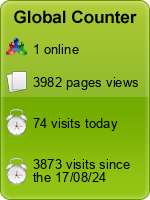Mobile health untuk meningkatkan self-management pada pasien diabetes mellitus: A literature review
DOI:
https://doi.org/10.33024/hjk.v18i8.464Keywords:
Diabetes Mellitus, Mobile Health, Self-ManagementAbstract
Background: Diabetes Mellitus causes serious complications with increasing incidence rates, due to the lack of patient support for self-management. The current rise in innovation, one of which is the use of mobile health which can be used for self-management interventions for diabetes patients
Purpose: To determine the potential for developing mobile health applications in improving self-management of diabetes mellitus patients.
Method: Literature review research accessed from several databases such as CINAHL, Scopus, Pubmed, and Google Scholar, published in the last 5 years in the range of 2019-2024. The keywords used are "Self-Management", "Mobile-Health" or Mobile Applications, "Diabetes Mellitus". Article assessment uses the Preferred Reporting Items for Systematic Reviews and Meta-Analyses (PRISMA) guidelines.
Results: The use of mobile health applications can improve glycemic control, namely reducing HbA1c levels, fasting and post-prandial blood glucose and contributing to reducing BMI.
Conclusion: Providing interventions with mobile health has been shown to improve self-management in DM patients.
Keywords: Diabetes Mellitus; Mobile Health; Self-Management.
Pendahuluan: Penyakit diabetes mellitus (DM) menimbulkan komplikasi yang serius dengan angka kejadiannya yang semakin meningkat. Salah satu faktor yang menyebabkan penyakit DM yaitu kurangnya dukungan pasien terhadap self-management. Salah satu inovasi penanganan penyakit saat ini adalah penggunaan mobile health yang dapat digunakan untuk intervensi self-management terhadap pasien diabetes
Tujuan: Untuk mengetahui potensi pengembangan aplikasi mobile health dalam meningkatkan self-management pasien diabetes mellitus.
Metode: Penelitian literature review diakses dari beberapa database seperti CINAHL, Scopus, Pubmed, dan Google Scholar, diterbitkan 5 tahun terakhir pada rentang 2019-2024. Kata kunci yang digunakan yaitu “Self-Management”, “Mobile-Health” or Mobile Applications, “Diabetes Mellitus”. Penilaian artikel menggunakan panduan Preferred Reporting Items for Systematic Reviews and Meta-Analyses (PRISMA).
Hasil: Penggunaan aplikasi mobile health dapat meningkatkan kontrol glikemik, yaitu penurunan kadar HbA1c, glukosa darah puasa, dan postprandial serta berkontribusi dalam penurunan BMI.
Simpulan: Pemberian intervensi dengan mobile health terbukti dapat meningkatkan self-management pada pasien DM.
Kata Kunci: Diabetes Mellitus; Mobile Health; Self-Management.
References
Agarwal, P., Mukerji, G., Desveaux, L., Ivers, N. M., Bhattacharyya, O., Hensel, J. M., & Bhatia, R. S. (2019). Mobile App for Improved Self-Management Of Type 2 Diabetes: Multicenter Pragmatic Randomized Controlled Trial. JMIR MHealth And Uhealth, 7(1), E10321.
Amalindah, D., Winarto, A., & Rahmi, A. (2020). Effectiveness Of Mobile App-Based Interventions to Support Diabetes Self-Management: A Systematic Review. Jurnal Ners, 15(1Sp), 9-18.
Davis, J., Fischl, A. H., Beck, J., Browning, L., Carter, A., Condon, J. E., & Villalobos, S. (2022). 2022 National Standards for Diabetes Self-Management Education and Support. The Science of Diabetes Self-Management and Care, 48(1), 44-59.
Firdaus, M. K. Z. H., Jittanoon, P., Boonyasopun, U., & Hasan, M. K. C. (2023). The Effect of MHealth Program on Behavior Modification and Health Outcomes Among Patients with Diabetes: A Randomized Controlled Trial Study. Belitung Nursing Journal, 9(5), 437.
Gerber, B. S., Biggers, A., Tilton, J. J., Marsh, D. E. S., Lane, R., Mihailescu, D., & Sharp, L. K. (2023). Mobile Health Intervention in Patients with Type 2 Diabetes: A Randomized Clinical Trial. JAMA Network Open, 6(9), E2333629-E2333629.
Gong, E., Baptista, S., Russell, A., Scuffham, P., Riddell, M., Speight, J., & Oldenburg, B. (2020). My Diabetes Coach, A Mobile App–Based Interactive Conversational Agent to Support Type 2 Diabetes Self-Management: Randomized Effectiveness-Implementation Trial. Journal Of Medical Internet Research, 22(11), E20322.
Guo, M., Meng, F., Guo, Q., Bai, T., Hong, Y., Song, F., & Ma, Y. (2023). Effectiveness Of MHealth Management with An Implantable Glucose Sensor and A Mobile Application Among Chinese Adults with Type 2 Diabetes. Journal Of Telemedicine and Telecare, 29(8), 632-640.
Haas, L., Maryniuk, M., Beck, J., Cox, C. E., Duker, P., Edwards, L., & Youssef, G. (2012). National Standards for Diabetes Self-Management Education and Support. The Diabetes Educator, 38(5), 619-629.
Heng, M. L., Kwan, Y. H., Ilya, N., Ishak, I. A., Jin, P. H., Hogan, D., & Carmody, D. (2020). A Collaborative Approach in Patient Education for Diabetes Foot and Wound Care: A Pragmatic Randomised Controlled Trial. International Wound Journal, 17(6), 1678-1686.
Höchsmann, C., Walz, S. P., Schäfer, J., Holopainen, J., Hanssen, H., & Schmidt-Trucksäss, A. (2017). Mobile Exergaming for Health—Effects of A Serious Game Application for Smartphones On Physical Activity And Exercise Adherence In Type 2 Diabetes Mellitus—Study Protocol For A Randomized Controlled Trial. Trials, 18, 1-17.
Kementerian Kesehatan Republik Indonesia. (2020). Tetap produktif, cegah, dan atasi diabetes melitus. Diakses dari: Https://Www.Academia.Edu/60239044/Infodatin_2020_Diabetes_Melitus
Lee, M. K., Lee, D. Y., Ahn, H. Y., & Park, C. Y. (2021). A Novel User Utility Score for Diabetes Management Using Tailored Mobile Coaching: Secondary Analysis of a Randomized Controlled Trial. JMIR MHealth And Uhealth, 9(2), E17573.
Pamungkas, R. A., Usman, A. M., & Chamroonsawasdi, K. (2022). A Smartphone Application of Diabetes Coaching Intervention to Prevent the Onset of Complications and To Improve Diabetes Self-Management: A Randomized Control Trial. Diabetes & Metabolic Syndrome: Clinical Research & Reviews, 16(7), 102537.
Poppe, L., De Bourdeaudhuij, I., Verloigne, M., Shadid, S., Van Cauwenberg, J., Compernolle, S., & Crombez, G. (2019). Efficacy Of a Self-Regulation–Based Electronic and Mobile Health Intervention Targeting an Active Lifestyle In Adults Having Type 2 Diabetes And In Adults Aged 50 Years Or Older: Two Randomized Controlled Trials. Journal Of Medical Internet Research, 21(8), E13363.
Soewondo, P., Ferrario, A., & Tahapary, D. L. (2013). Challenges In Diabetes Management in Indonesia: A Literature Review. Globalization And Health, 9, 1-17.
Sun, C., Sun, L., Xi, S., Zhang, H., Wang, H., Feng, Y., & Wang, G. (2019). Mobile Phone–Based Telemedicine Practice in Older Chinese Patients with Type 2 Diabetes Mellitus: Randomized Controlled Trial. JMIR MHealth And Uhealth, 7(1), E10664.
Viandarisa, N., Suradi, S., & Priyono, D. (2020). Penggunaan Mobile Health Berbasis Smartphone Untuk Meningkatkan Self-Management Pada Pasien Diabetes Melitus Tipe 2: Literature Review.
Webber, S. (2011). International Diabetes Federation. Journal Of Diabetes Nursing, 15(3), 118-119.
World Health Organization. (2011). mHealth: New horizons for health through mobile technologie. Diakses dari: https://www.afro.who.int/publications/mHealth-new-horizons-health-through-mobile-technologie#:~:text=mHealth%3A%20New%20horizons%20for%20health%20through%20mobile%20technologie,powerful%20combination%20of%20factors%20is%20driving%20this%20change.
Yang, Y., Lee, E. Y., Kim, H. S., Lee, S. H., Yoon, K. H., & Cho, J. H. (2020). Effect Of a Mobile Phone–Based Glucose-Monitoring and Feedback System for Type 2 Diabetes Management In Multiple Primary Care Clinic Settings: Cluster Randomized Controlled Trial. JMIR MHealth And Uhealth, 8(2), E16266.
Yasmin, F., Nahar, N., Banu, B., Ali, L., Sauerborn, R., & Souares, A. (2020). The Influence of Mobile Phone-Based Health Reminders on Patient Adherence to Medications and Healthy Lifestyle Recommendations for Effective Management of Diabetes Type 2: A Randomized Control Trial In Dhaka, Bangladesh. BMC Health Services Research, 20, 1-12.
Yoo, S. H., Min, K. P., & Park, C. Y. (2020). Effect Of Voluntary Participation on Mobile Health Care in Diabetes Management: Randomized Controlled Open-Label Trial. JMIR MHealth And Uhealth, 8(9), E19153.
Zhai, Y., & Yu, W. (2020). A Mobile App for Diabetes Management: Impact on Self-Efficacy Among Patients with Type 2 Diabetes at A Community Hospital. Medical Science Monitor: International Medical Journal of Experimental and Clinical Research, 26, E926719-1.









